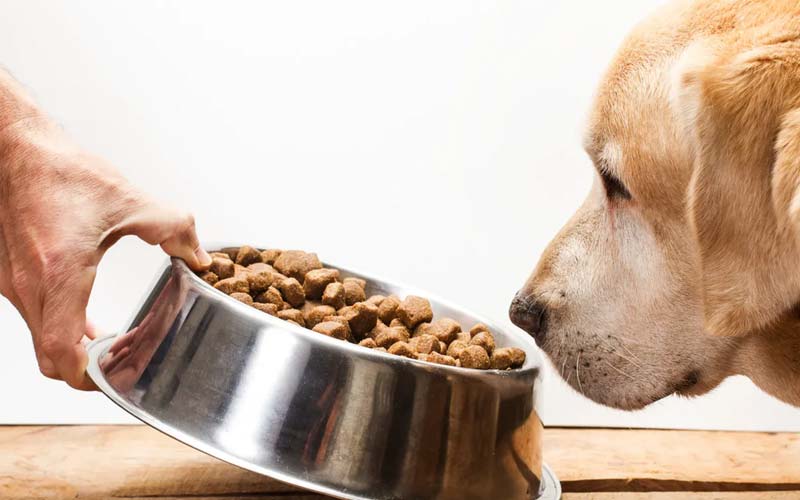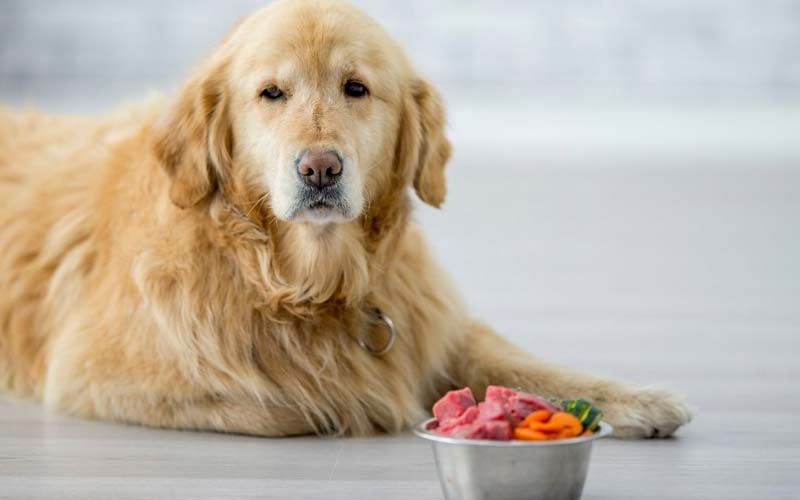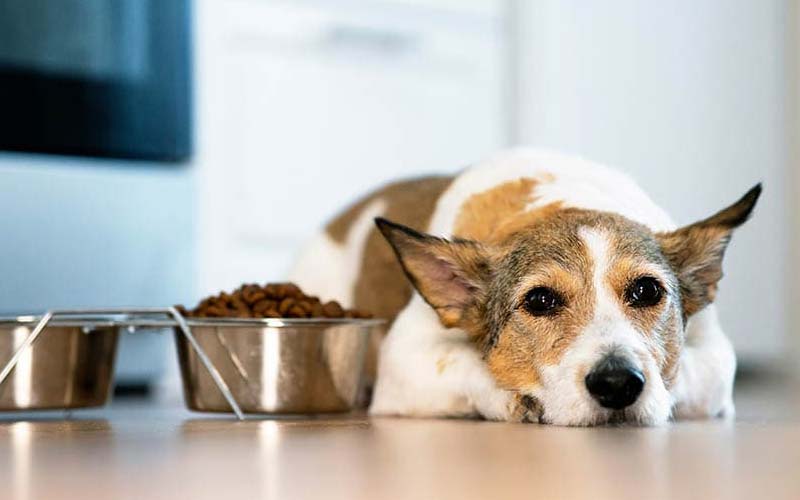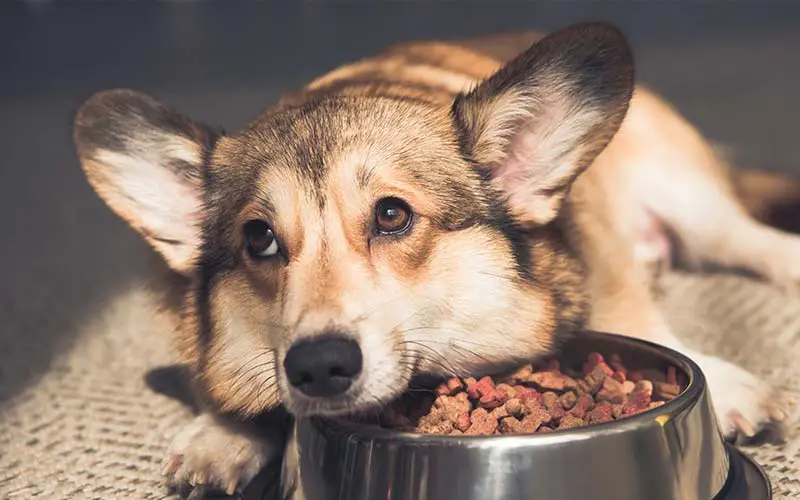A dog’s appetite is often a window into their overall health and well-being. When your dog suddenly refuses food, it can be a stressful experience for any pet owner. While a missed meal here or there might not be a cause for immediate concern, persistent or abrupt changes in eating habits often signal underlying issues that need attention.

Loss of appetite in dogs, known as anorexia, can stem from various factors—ranging from minor stressors to serious medical conditions. By understanding the root causes, you can address the issue effectively and ensure your pet stays healthy. This article explores common reasons dogs stop eating, signs that warrant veterinary intervention, and practical solutions to help rekindle their appetite.
Your furry companion relies on you to notice these changes and take action. Let’s delve into why your dog might not be eating and what steps you can take to resolve the problem.
1. Common Causes of Appetite Loss in Dogs
A. Medical Reasons
Loss of appetite in dogs can often be traced to underlying medical issues, many of which require prompt attention:
- Digestive Problems: Conditions like upset stomach, vomiting, or diarrhea can deter a dog from eating. Gastrointestinal infections, parasites, or food intolerances are common culprits. Dogs experiencing these symptoms might avoid food to prevent discomfort.
- Dental Issues: Painful dental conditions such as gum disease, broken teeth, or oral infections can make chewing difficult. If your dog seems interested in food but avoids eating, this could point to oral discomfort.
- Chronic Illnesses: Diseases like diabetes, kidney failure, liver disease, or cancer can all suppress a dog’s appetite. These conditions often accompany other symptoms, such as lethargy, weight loss, or increased thirst, indicating the need for veterinary evaluation.
B. Emotional and Behavioral Factors
Dogs are sensitive creatures, and their emotions can heavily influence their eating habits:
- Stress: Changes in the environment, such as moving to a new home or the loss of a family member, can cause temporary appetite loss. Stress often manifests through avoidance behaviors, including turning away from food.
- Anxiety: Situational anxiety, such as fear of loud noises or separation from their owner, can suppress a dog’s hunger. Dogs prone to anxiety may refuse food until their stress subsides.
- Picky Eating Habits: Frequent changes in food or overindulging with treats can make a dog finicky. If they associate meals with less exciting flavors compared to their favorite treats, they may opt to skip their regular meals altogether.
C. Environmental Triggers
External factors also play a role in why a dog may stop eating:
- Food Quality: Dogs can detect stale or spoiled food with their keen sense of smell. If the food’s quality is compromised, they may refuse to eat it entirely.
- Distractions: Feeding a dog in a loud or crowded environment may overwhelm them, making it difficult for them to focus on eating. A quiet, calm feeding space is crucial for sensitive dogs.
- Weather Impact: Hot weather often leads to reduced appetites in dogs, as their bodies require fewer calories to regulate their temperature.
Understanding these common causes equips dog owners with the knowledge to address appetite loss effectively. When in doubt, consult a veterinarian to rule out serious conditions and ensure your dog receives the care they need.

2. Signs That Appetite Loss Requires Immediate Attention
When a dog stops eating, it is crucial to differentiate between temporary appetite loss and a more serious underlying problem. Recognizing danger signals and accompanying symptoms can help pet owners act quickly and seek professional help when necessary.
Danger Signals
Certain signs paired with a loss of appetite indicate urgent health concerns:
- Vomiting: Persistent vomiting alongside refusal to eat may point to gastrointestinal blockages, infections, or poisoning.
- Lethargy: A dramatic decrease in energy levels often accompanies serious illnesses.
- Weight Loss: Rapid or noticeable weight loss is alarming and suggests that the issue is long-standing or severe.
- Refusal to Eat for More Than 24-48 Hours: While skipping a meal is not uncommon, prolonged refusal to eat is a red flag, particularly in smaller breeds, puppies, or senior dogs who cannot afford prolonged calorie deficits.
Accompanying Symptoms
Additional symptoms can provide clues about what might be causing your dog’s appetite loss:
- Bad Breath: Foul-smelling breath may signal dental disease or internal issues like kidney dysfunction.
- Pawing at the Mouth: A dog displaying discomfort around their mouth might be dealing with oral pain, infections, or a foreign object lodged in their teeth.
- Changes in Bowel Habits: Diarrhea, constipation, or abnormal stool appearance (e.g., black or tarry) often indicate digestive issues or internal bleeding.
When to Call the Vet
Knowing when to seek veterinary care is critical.
- If your dog exhibits any of the danger signals listed above, consult your vet promptly.
- Appetite loss accompanied by fever, labored breathing, seizures, or significant behavioral changes demands immediate attention.
- For senior dogs or those with pre-existing conditions like diabetes or kidney disease, even mild appetite loss can lead to complications and should be addressed quickly.
Proactively observing your dog’s behavior and identifying these warning signs can prevent minor issues from escalating into life-threatening emergencies. Always err on the side of caution—your veterinarian can help determine the severity of the situation and recommend appropriate treatment.

3. How to Address the Problem
When your dog refuses to eat, addressing the issue involves identifying potential causes and implementing appropriate solutions. Here are actionable steps to help:
A. Assess the Food
- Check Expiration Dates and Freshness: Dogs are highly sensitive to smells. Ensure the food is not stale or spoiled. If in doubt, replace it with a fresh batch.
- Enhance the Aroma: Warm the food slightly to make it more enticing, or add a small amount of low-sodium chicken broth. Mixing in a bit of their favorite wet food can also improve palatability.
B. Evaluate Environmental Factors
- Create a Calm Feeding Space: A quiet, distraction-free area can encourage your dog to focus on eating, particularly if they are sensitive to noise or other pets.
- Establish a Routine: Feed your dog at consistent times each day to build a reliable eating schedule. Dogs thrive on routine, and irregular feeding times can disrupt their appetite.
C. Manage Emotional Factors
- Reduce Stress: Spend quality time with your dog and ensure they feel secure. Gentle play or relaxation time before meals can alleviate anxiety.
- Use Positive Reinforcement: Encourage your dog with verbal praise or a treat when they approach their food bowl. Avoid pressuring or punishing them for not eating, as this can exacerbate the issue.
D. Seek Professional Help
- When to Consult a Vet: If your dog’s appetite does not improve within a day or two, or if they display other symptoms like vomiting, diarrhea, or lethargy, a veterinarian should evaluate them.
- Potential Diagnostics: The vet may recommend tests such as blood work, X-rays, or ultrasounds to rule out underlying medical issues like infections, organ dysfunction, or blockages.
By following these steps, you can often pinpoint and address the reasons for your dog’s appetite loss. If home remedies don’t work or symptoms worsen, professional care is vital to ensure your dog’s health and well-being.

4. Preventing Future Appetite Loss
Preventing appetite loss in dogs requires a proactive approach that prioritizes their health, comfort, and overall well-being. Here are key strategies to help:
Dietary Consistency
- Gradual Food Transitions: When switching to a new brand or type of food, do so gradually over 7–10 days. Start by mixing a small amount of the new food with the current one, increasing the proportion daily. Abrupt changes can upset a dog’s stomach and discourage eating.
- Avoid Overfeeding Treats: Limit the frequency of treats, as overindulgence can lead to picky eating habits. Treats should make up no more than 10% of your dog’s daily caloric intake.
Routine Health Checks
- Regular Vet Visits: Schedule annual or semi-annual veterinary checkups, depending on your dog’s age and health. These visits can catch medical issues early before they affect your dog’s appetite.
- Monitor Dental Health: Poor oral hygiene is a common cause of appetite loss. Regular teeth brushing and dental checkups help prevent painful dental issues.
Balanced Lifestyle
- Adequate Exercise: Daily physical activity not only keeps your dog fit but also stimulates a healthy appetite. Tailor exercise routines to your dog’s breed, age, and energy levels.
- Mental Stimulation: Boredom can lead to stress and appetite loss. Interactive toys, training sessions, or puzzle feeders can keep your dog mentally engaged and happy.
- Bonding Time: Spend quality time with your dog to foster a sense of security and companionship. A well-loved dog is less likely to experience stress-induced appetite loss.
By maintaining consistency in diet, prioritizing health checks, and fostering a balanced lifestyle, you can significantly reduce the risk of appetite-related issues and keep your dog healthy and content. Prevention is always better than cure, ensuring your furry companion enjoys a happy, well-nourished life.

Conclusion Reasons Your Dog Will Not Eat
In conclusion, when your dog refuses to eat, it’s important to consider a variety of factors that could be at play. From medical issues like gastrointestinal discomfort or dental problems to emotional triggers like stress or anxiety, understanding the root cause is essential. Paying attention to warning signs such as vomiting, lethargy, or weight loss can help you determine whether immediate veterinary care is needed.
By assessing food quality, ensuring a calm environment, managing emotional well-being, and seeking professional help when necessary, you can address most appetite-related issues. Preventive measures like consistent diet, routine health checks, and a balanced lifestyle are also key in preventing future problems.
If your dog’s refusal to eat persists or worsens, don’t hesitate to consult your veterinarian for a thorough evaluation. Timely intervention can help ensure your dog’s health and restore their appetite, allowing them to live a long, happy, and healthy life.